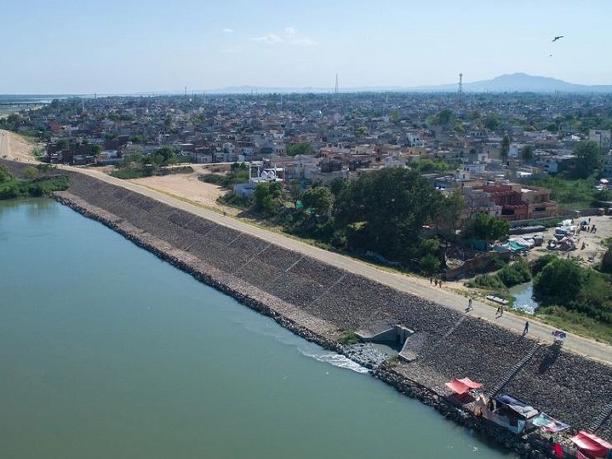Switzerland
Listen to the article
Cumulative
- Project-Specific Cofinancing $62.1 million
- Contributions Committed to Trust Funds $41.7 million
2023
- Project-Specific Cofinancing $5 million
Two key offices are responsible for Switzerland’s official development assistance. The Swiss Agency for Development and Cooperation (SDC) serves as the country’s international cooperation agency while the State Secretariat for Economic Affairs implements Switzerland’s economic and trade policy measures for the benefit of developing countries.
SDC’s initiatives cover a broad range of themes, such as climate change and the environment; water; agriculture and food security; health; migration; basic education and vocational skills development; disaster risk reduction, emergency relief, reconstruction, and protection; private sector development and financial services; gender equality; good governance; addressing fragilities; promoting human rights and peaceful, just, and inclusive societies. In Asia, the SDC assists Bangladesh, Mongolia, Nepal, the Greater Mekong Subregion (Cambodia and the Lao People’s Democratic Republic), and Hindu Kush (Pakistan). Furthermore, the SDC reopened its office in Kabul to provide humanitarian aid.
The State Secretariat for Economic Affairs (SECO) promotes reliable economic framework conditions and innovative private sector initiatives. It focuses on economic policy, trade system, business environment, urban development and infrastructure services, access to financing, value chains, corporate social responsibility, and market-oriented skills, mostly in Indonesia and Viet Nam. Furthermore, SECO is active in the Asian region via so-called global programs.
The Swiss Agency for Development and Cooperation and SECO are active and have a presence in Central Asia (Tajikistan, the Kyrgyz Republic, and Uzbekistan) and the Caucasus region (Georgia, Armenia, and Azerbaijan).
Highlights of ADB–Switzerland Engagement in 2023:
Sovereign Cofinancing. In 2023, Switzerland committed $5 million in technical assistance to support Viet Nam in nurturing financial information technologies (fintech) that can help address persistent financial inclusion challenges and improve green banking practices. Through policy advice and capacity building, Switzerland will help the country meet its commitments made at the United Nations Climate Change Conference in Glasgow (COP26).
Nonsovereign Cofinancing. The Trade and Supply Chain Finance Program (TSCFP) supported over 310 transactions valued at $1.2 billion with banks domiciled in Switzerland from inception to December 2023. During the same period, the TSCFP supported over 1,340 Swiss exports and/or imports valued at $4.6 billion. In 2023 alone, the TSCFP supported 43 transactions valued at $230.3 million with banks domiciled in Switzerland and supported 129 Swiss exports and/or imports valued at $293 million. Exports and/or imports were mainly to or from Bangladesh, Viet Nam, and Pakistan. Underlying goods involved mostly food and agriculture-related goods, raw and non-energy commodities, as well as textiles and apparel.
Switzerland has also supported ADB’s TSCFP through a contribution to the Urban Climate Change Resilience Trust Fund, which provided $1.5 million to finance TSCFP’s safeguards-related initiatives.
Special Funds. Switzerland contributes to ADB special funds. Since becoming a member in 1967, Switzerland has committed $449.9 million to special funds, of which $424.7 million went to the Asian Development Fund (ADF). The ADF provides grants to ADB’s low-income, developing member countries to help reduce poverty and improve quality of life.
Knowledge. In November 2023, ADB hosted the financing donors for the annual consultation meetings of the Clean Energy, Urban, and Water Financing Partnership Facilities (FPFs) in India. ADB thanked the donors, including Switzerland, while highlighting the FPFs’ role in developing innovative solutions. Donors expressed their support for the FPFs, underscoring the importance of scaling up knowledge and innovation, ensuring greater visibility for donor contributions, and diversifying the funding base for the FPFs.
Active Trust Funds
Active trust funds are those a) with ongoing projects; or b) with no active projects but have remaining funds.
News
4 May 2023
ADB, Switzerland Sign $5 Million Cofinancing Agreement to Improve Access to Finance for SMEs in Viet Nam
The cofinancing agreement of up to $5 million will nurture financial technologies (fintech) that can help address low financial inclusion in Viet Nam
13 Jan 2020
ADB, Norway Sign Agreement to Support Pakistan's National Disaster Risk Management Fund
ADB and Norway agreed to expand their support for Pakistan’s National Disaster Risk Management Fund in 2020. This partnership bolstered the country’s efforts in addressing disaster risk reduction and preparedness. Pakistan has already lost tens of thousands of people in the last 15 years and suffered substantial economic losses due to various disasters.




